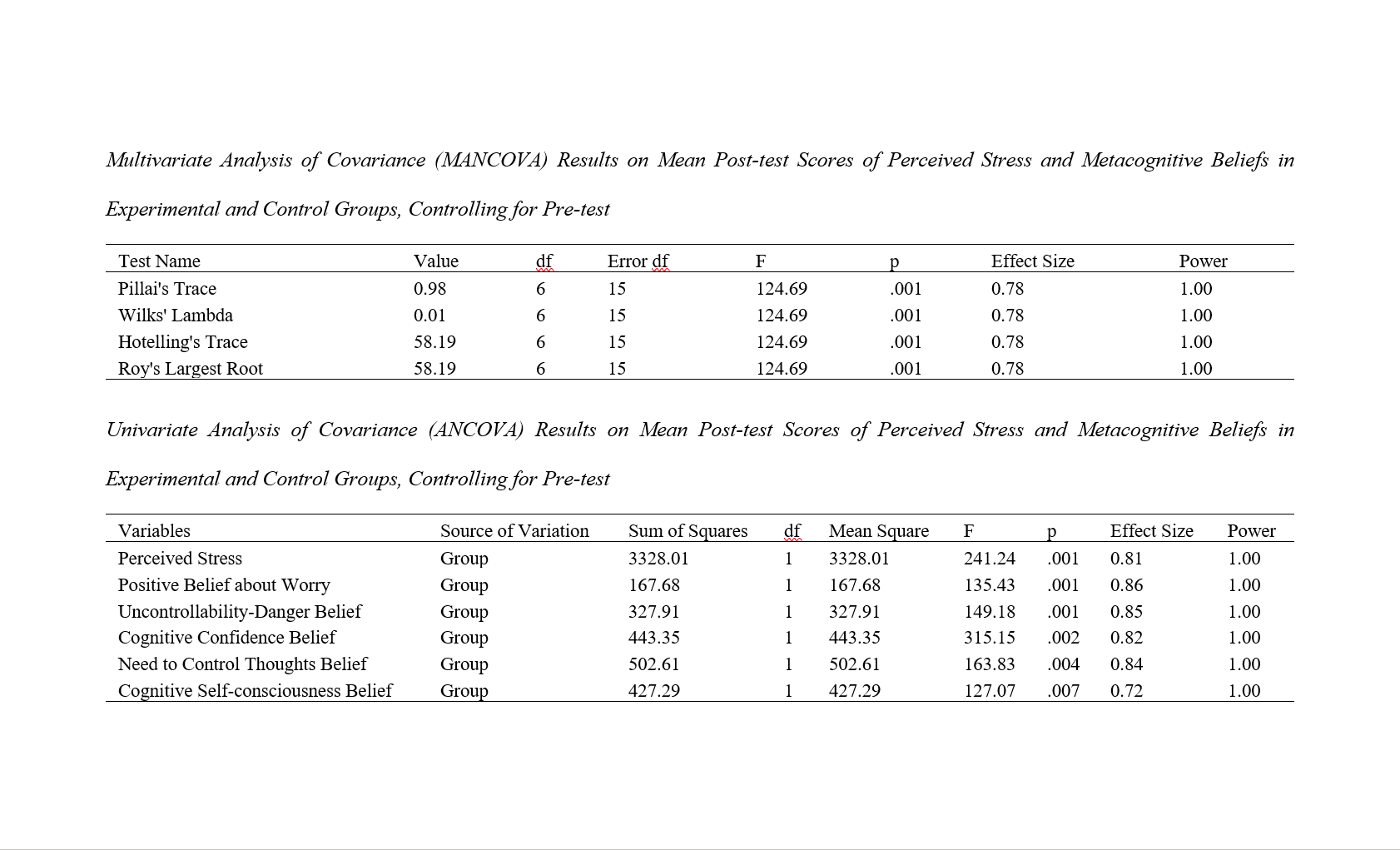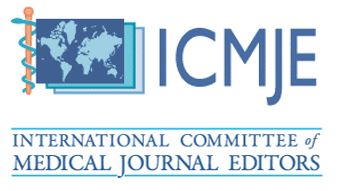Effectiveness of Group Hypnotherapy on Stress and Metacognitive Beliefs in Individuals with Multiple Sclerosis
Keywords:
Hypnosis, Stress, Metacognitive Beliefs, Multiple SclerosisAbstract
The objective of the present study was to investigate the effectiveness of group hypnotherapy on stress and metacognitive beliefs in individuals with multiple sclerosis. The research method was experimental (pre-test, post-test design with an equal control group). The research sample consisted of 30 individuals with multiple sclerosis, selected through purposive sampling. Subsequently, from the research sample, 15 individuals with multiple sclerosis were randomly assigned to the experimental group and 15 individuals with multiple sclerosis were assigned to the control group. The research instruments included the Cohen et al. (1983) Stress Questionnaire and the Wells (2004) Metacognitive Beliefs Questionnaire. Data were analyzed using multivariate analysis of covariance (MANCOVA) and analysis of covariance (ANCOVA) methods. The results of data analysis indicated that group hypnotherapy resulted in a reduction of perceived stress and metacognitive beliefs in individuals with multiple sclerosis in the experimental group compared to the control group. Consequently, it can be concluded that group hypnotherapy with hypnotic techniques is an effective method for reducing perceived stress and metacognitive beliefs in individuals with multiple sclerosis.
Downloads

Downloads
Additional Files
Published
License
Copyright (c) 2024 Ebrahim Habibi Khalifehloo (Author); Farah Naderi (Corresponding Author); Saeed Bakhtiarpour, Naser Seraj Khorami (Author)

This work is licensed under a Creative Commons Attribution-NonCommercial 4.0 International License.

























